Skincare Tips For Severe Acne Sufferers
Understanding Severe Acne: A Critical Skin Condition
Severe acne is a critical skin condition that significantly impacts the lives of those affected. It is a more intense form of acne that demands urgent attention to prevent long-term complications, including scarring.
Prevalence of Acne
Acne is one of the most common skin conditions, affecting approximately 85% of people aged 12 to 24. Although it is often associated with adolescence, acne can occur at any age, impacting individuals well into adulthood. The condition ranges from mild to severe, with severe acne being less common but far more damaging both physically and emotionally.
Seriousness of Severe Acne
Severe acne is characterized by large, painful cysts and inflamed nodules that develop deep within the skin. These lesions are often accompanied by significant swelling and tenderness, making the condition not only physically uncomfortable but also distressing for those affected. The severity of the inflammation and the size of the lesions increase the risk of permanent scarring. Without proper treatment, severe acne can lead to deep, lasting scars that are challenging to treat and can contribute to emotional distress and self-esteem issues.
Importance of Urgent Attention
Timely treatment of severe acne is crucial to prevent the condition from worsening and to minimize the risk of permanent scarring. Early intervention can help reduce the severity of lesions, control inflammation, and prevent the formation of new acne. Treatment options may include oral and topical medications, such as antibiotics, retinoids, or hormonal therapies, as well as procedures like drainage and extraction for large cysts. In severe cases, a dermatologist may prescribe isotretinoin, a powerful medication that can dramatically improve severe acne.
Prompt and effective treatment not only alleviates the physical symptoms of severe acne but also helps protect the skin from long-term damage. Addressing severe acne with urgency is essential to preserving skin health and preventing the lasting effects that untreated acne can leave behind.
Effective Skincare Routine for Severe Acne
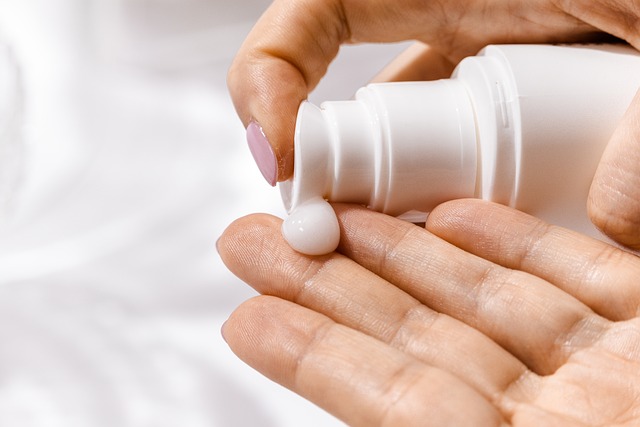
An effective skincare routine is essential for managing severe acne and preventing further breakouts. Here’s a step-by-step guide tailored for those dealing with this challenging skin condition:
1. Gentle Cleansing
Start by washing your face twice daily—once in the morning and once before bed—with a mild soap or a gentle, non-irritating cleanser. Harsh scrubs or cleansers can exacerbate acne by irritating the skin, so it’s important to stick to products that are formulated for sensitive or acne-prone skin. Use lukewarm water and gently pat your skin dry with a clean towel to avoid further irritation.
2. Makeup and Physical Activity
- Makeup: Always remove makeup before going to bed to prevent clogged pores and allow your skin to breathe overnight. Use a gentle makeup remover or micellar water designed for sensitive skin.
- After Physical Activity: Sweat can mix with oil and bacteria on the skin, leading to clogged pores and acne flare-ups. After physical activity or sweating, cleanse your skin as soon as possible to remove impurities and keep your pores clear.
3. Noncomedogenic Products
Choose skincare and cosmetic products labeled as “noncomedogenic,” meaning they won’t clog pores. This includes everything from moisturizers to makeup and sunscreens. Noncomedogenic products help minimize the risk of new acne formation while still providing necessary hydration and protection for your skin.
4. Sun Protection
Sun exposure can worsen acne and lead to hyperpigmentation, especially if you’re using acne treatments that make your skin more sensitive to the sun. Protect your skin by applying a noncomedogenic sunscreen with at least SPF 30 daily, even on cloudy days. Additionally, wearing protective clothing, such as wide-brimmed hats, can further shield your skin from harmful UV rays.
5. Over-the-Counter Treatments
Incorporate over-the-counter treatments that contain acne-fighting ingredients into your routine:
- Benzoyl Peroxide: Reduces acne-causing bacteria and helps prevent future breakouts. Start with a lower concentration to minimize irritation.
- Salicylic Acid: Exfoliates the skin and clears pores by breaking down excess oil and dead skin cells, making it effective for preventing clogged pores.
- Sulfur: Reduces oiliness and has antibacterial properties, making it beneficial for treating acne.
Apply these treatments after cleansing and before moisturizing. Be mindful of overuse, as too many active ingredients can dry out and irritate the skin, leading to further breakouts.
Additional Self-Care Tips and Techniques

In addition to a well-structured skincare routine, incorporating self-care tips and techniques can further help manage severe acne and support overall skin health. Here are some effective strategies:
1. Avoid Touching Your Face
Keeping your hands away from your face is crucial in reducing the transfer of bacteria, dirt, and oils that can clog pores and lead to breakouts. Touching your face, especially with unwashed hands, can introduce new irritants to your skin, exacerbating acne. Try to be mindful of this habit, particularly during activities like working at a desk, using a phone, or resting your chin in your hands.
2. Cold and Heat Applications
- Cold Applications: Applying ice to inflamed pimples can reduce swelling and redness. Wrap an ice cube in a clean cloth and hold it against the affected area for a few minutes to soothe irritation and decrease the size of inflamed spots.
- Heat Applications: For whiteheads or pimples that are close to the surface, a warm compress can help soften the skin and release trapped pus. This can be done by soaking a clean washcloth in warm water and gently applying it to the area for several minutes.
3. Cleanliness in Daily Habits
Ensuring proper hygiene in your daily routines can prevent skin irritation and reduce the risk of breakouts:
- Thorough Rinsing: After using shampoos, conditioners, or body soaps, make sure to rinse them off completely. Residue from these products can clog pores, especially along the hairline and on the back.
- Proper Makeup Removal: At the end of the day, cleanse your skin thoroughly to remove all traces of makeup. Leftover residue can clog pores and contribute to breakouts, so it’s important to use a gentle but effective makeup remover followed by a cleanser.
4. Maintaining Clean Bedding
The Truth About Pillowcase Causing Breakouts
Regularly washing your sheets and pillowcases is essential for providing a clean environment for your skin. Bedding can accumulate oils, sweat, and bacteria from your skin and hair, which can then be transferred back to your face while you sleep. Aim to change pillowcases at least once a week, or more often if you’re experiencing severe breakouts.
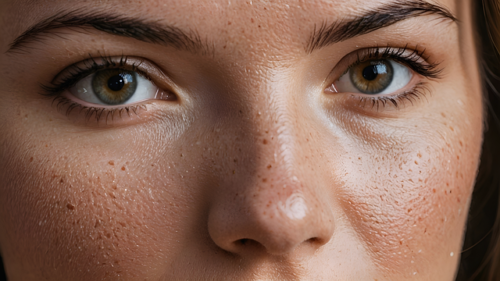
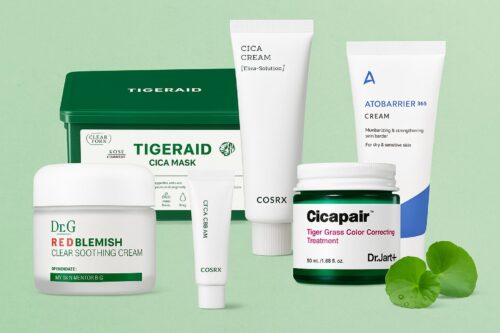
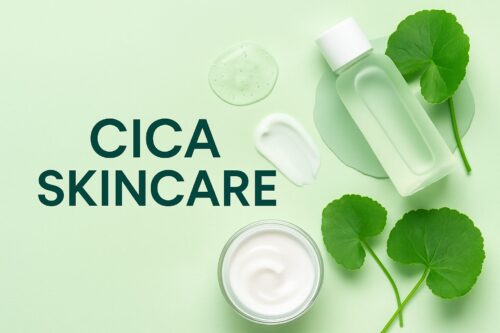
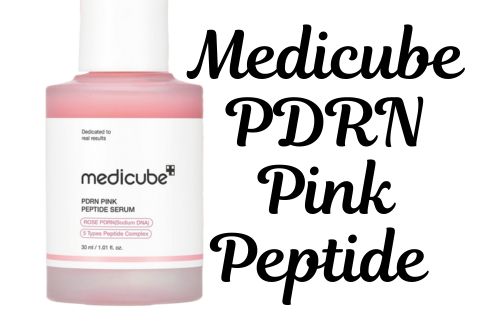
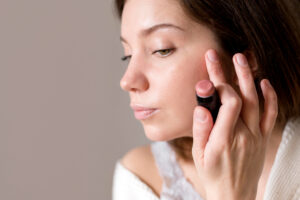
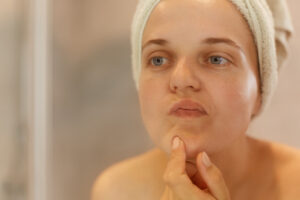
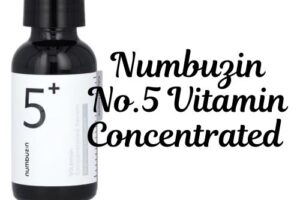
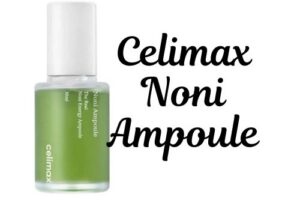
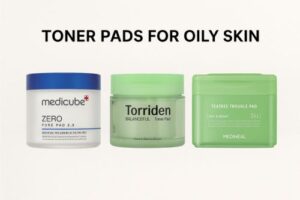
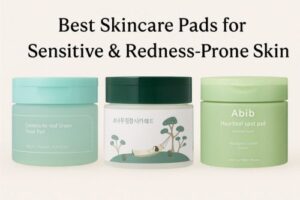
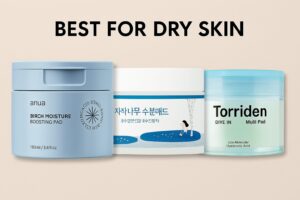

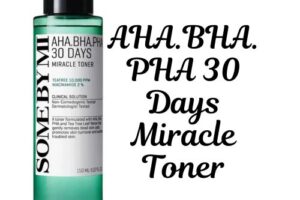
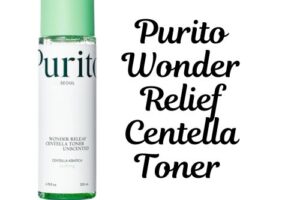
7 comments